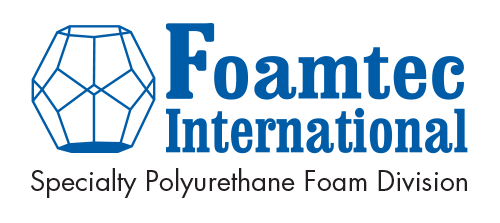Polyurethane Foams Used in Manufacturing Pottery and Ceramic Products
The pottery and ceramics industry is a fascinating blend of age-old techniques and cutting-edge technology. While the basic essence of molding clay has remained largely the same over millennia, the tools and materials employed have continually evolved. Foam sponges have been a great tool in creating pottery. However, not all foam sponges are created equal, and the industry demands certain specialized properties that elevate this seemingly simple tool to an essential component of both manual and automated processes.
Needed Properties of PU Foam in Ceramics
Porosity
The foam's porosity must be meticulously balanced to hold and release the right amount of water or slip during crafting. Too porous and it releases moisture too quickly; too dense and it won't release enough.
Durability
Whether used for wiping, scrubbing, or part of an automated process, the foam must withstand repetitive and sometimes vigorous actions, making durability an essential characteristic.
Softness and Flexibility
The foam should strike a balance between being soft enough not to scratch the ceramic surfaces yet firm enough to provide adequate control during the shaping and smoothing processes.
Chemical Resistance
PU foam should resist degradation from chemicals like glazes and slips, often used in pottery.
Uniform Structure
Especially important in automated systems, the foam’s cellular structure should be consistent to ensure uniform application and absorption across its surface.
Advancing PU Foam for Optimal Outcomes
While PU foam has proven its efficacy, advancements can be made to optimize its performance further.
Targeted Porosity
By developing specialized levels of porosity tailored for specific tasks, manufacturers can enhance the foam's performance, whether it's for the initial stages of wetting clay or for fine finishing work.
Improved Durability
Although PU foam is known for its durability, technology could enhance its wear resistance, leading to fewer replacements and more cost-effective operations.
Foamtec International's Tailored Solutions
Meeting the Needs of Manual Processes
Foamtec offers PU foam sponges designed for optimum softness and durability for artisans who rely on traditional, hands-on techniques. These sponges can be customized to have the desired level of porosity offering the craftsman greater control and longevity in their tools.
Solutions for Automated Industries
Foamtec offers highly consistent and durable PU foam sponges tailored for automated production lines in the ceramics industry. These are designed to meet exacting tolerances required for uniform and high-quality production.
Quality and Consistency
Whether it’s for manual or automated processes, Foamtec implements strict quality control measures to ensure that every batch of foam meets the required specifications. This is crucial for industries that can't afford deviations in the quality of their end products.
Adaptable Solutions
Understanding that the ceramics industry spans a range of applications, from fine art to industrial products, Foamtec offers adaptable foam solutions. These specialized sponges meet the unique requirements of each segment, providing optimized solutions across the board.
In the complex world of pottery and ceramics, the foam sponge plays a critical role that is often overlooked. The diverse needs of this industry demand a foam that is not just a simple absorbent material but a specialized tool engineered for specific tasks. While PU foam has proven to be a valuable asset, there is room for technological advancements that can further optimize its performance. Through customization, durability, innovation, and a commitment to quality, Foamtec is positioned to meet these evolving needs, offering tailored solutions that elevate both manual and automated processes in the ceramics industry. Whether you are an artisan relying on centuries-old techniques or a modern manufacturer employing automated systems, Foamtec’s range of PU foam solutions has something to offer everyone.

